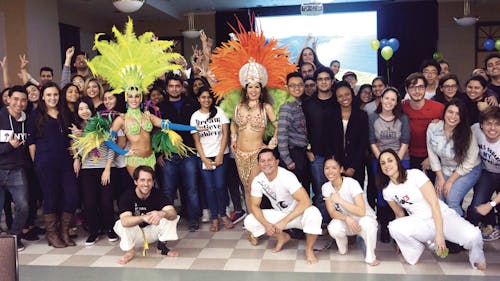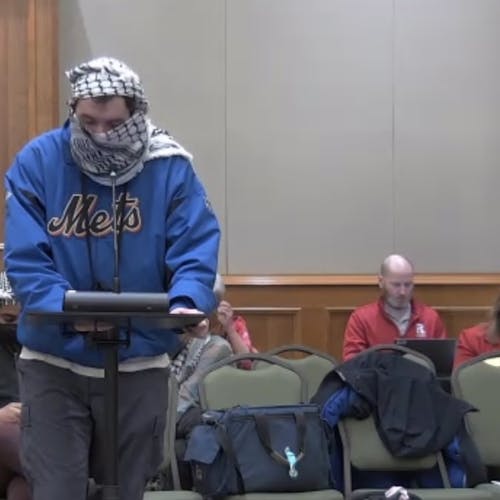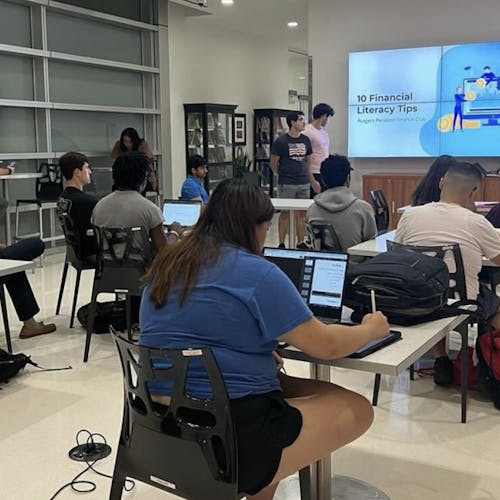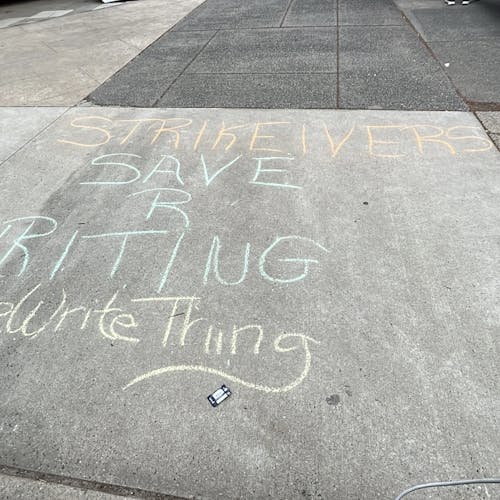Rutgers students host Carnaval to celebrate Brazilian, Portuguese culture

For a few hours last week, Rutgers students recreated the vibrant and euphoric streets of Rio de Janeiro during Brazil’s annual festival.
More than 100 students attended the “Brazilian Carnaval” held in the Douglass Student Center Thursday night. The event, hosted by O LAR, The Organization of Luso Americans at Rutgers, offered attendees a glimpse of Brazil’s culture through traditional cuisine, pulsating music, a martial arts performance and the staple of any Brazilian celebration — samba dancers.
Since 2008, O LAR has been promoting exposure to the cultural branches of different Portuguese-speaking countries such as Portugal, Brazil and Mozambique, and bringing together Rutgers students with heritage from these nations, said Jessica Pinto, president of the organization.
“Every country has taken bits and pieces from each other and also from around the world,” the School of Arts and Sciences senior said. “They have made a beautiful culture that really needs to be celebrated and recognized.”
After students were greeted with authentic Brazilian and Portuguese dishes and a dose of regional music, emphatic drumming introduced the Rutgers Capoeira Club.
With a blend of martial arts, dance and musical instruments, the group performed the centuries-old game-like tradition. Originating from the cultural diffusion between West African slaves and Brazil’s indigenous people during the region’s colonial period, Capoeira has become an essential part of the country’s heritage.
The leading performer, long-time advocate for the exportation of Brazilian culture Jose Silva, has been teaching Rutgers students the art of Capoeira for about 14 years and has not lost any of his passion for it.
“You know, they say now that after soccer, Capoeira is the second (biggest) sport in Brazil,” he said.
Moments after the crowd finished applauding Silva’s group’s act, the room again became animated as the next show was announced.
Two dancers from Samba Novo, a Brazilian dance school in New York, illuminated the center of the room with their customary flamboyant attire and colorful feathers. The attendees cheered their spirited and stimulating movements.
The dancers would then invite the crowd to join them at the dance floor and mimic their choreography.
“I think this event allows people who aren’t familiar with certain cultures to learn more about them and from the source too,” said Nia Carty, a School of Arts and Sciences senior. “You are not hearing about it from a textbook, you are seeing actual people from there.”
For Olivia Clifford, the Carnaval reminds her of her hometown of Kearny, where there is significant Brazilian influence and a large Portuguese population.
“I love Brazilian culture. Every year our high school would have an international festival, and the Portuguese and Brazilian tables were always the biggest ones,” the School of Arts and Sciences first-year student said.
Brazil’s government sends many students to study engineering at Rutgers, and events like these allow them to feel at home, Pinto said. Last year, a group of Brazilian international students approached O LAR to thank the organization for the events it hosts.
“They said, ‘Wow, it's amazing to see our culture, our country come alive in the United Sates,'” Pinto said. “It brings awareness that there are groups in Rutgers who do enjoy these events, because it brings them back to where they are from.”
The Portuguese cultural event titled, “Knights of Lusitania” that O LAR holds in the fall also serves New Jersey communities, such as Newark and South River, that have substantial numbers of Portuguese-Americans, she said.
Different colors, dances and foods all contribute to make the Carnaval a stress-free environment where anyone can experience first-hand the societal aspects of different nations, School of Arts and Sciences senior and O LAR vice president Sara Miranda said.
For Silva, one does not have to be native-born to be able to appreciate another country’s culture and way of life.
“Events like these allow your mind to expand and your judgment about different cultures changes,” he said. “No matter how different cultures are, we are all human beings, we all want the same things.”
Camilo Montoya-Galvez is a School of Arts and Sciences first-year student majoring in Spanish and journalism and media studies. He is a correspondent for The Daily Targum. Follow him on Twitter @camiloooom.



